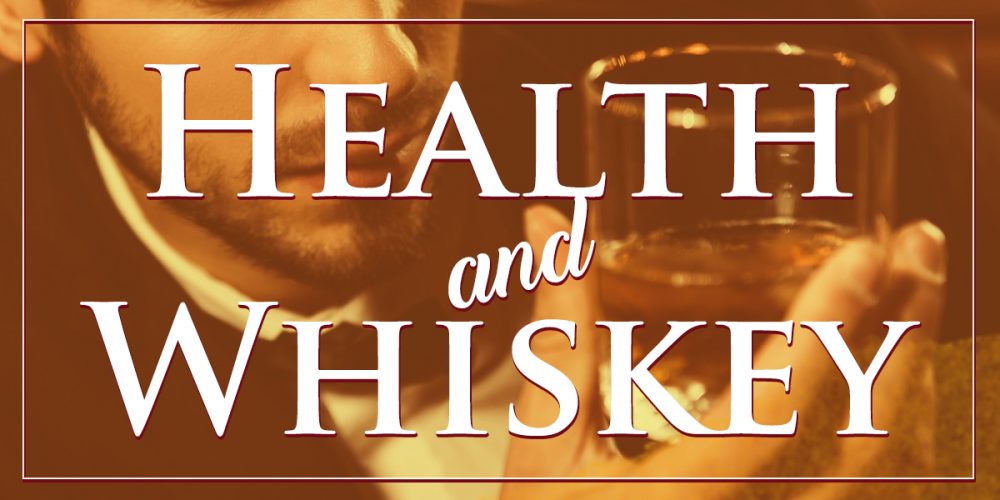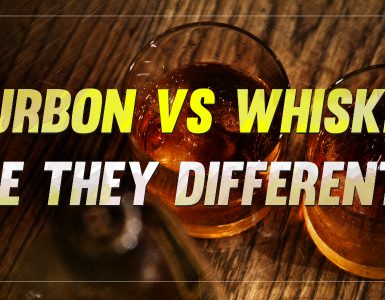The Health Benefits of Whiskey: Toasting to Long Life
“If when you say whiskey you mean the oil of conversation, the philosophic wine, the ale that is consumed when good fellows get together, that puts a song in their hearts and laughter on their lips, and the warm glow of contentment in their eyes; . . . then certainly I am for it.” This excerpt from a speech by Mississippi legislator Noah Sweat in 1952 is often cited by professors discussing logical discourse to illustrate the fallacy in a speech that supports opposing positions. Sweat said these words as a counterpoint to his first statements that were rabidly in support of the prevailing position on prohibition of whiskey and other such alcoholic beverages at that time. Thankfully, the paranoid days of prohibition have long since passed.
Even as early as the 15th Century when highland producers first used the ancient art of distillation to produce a wonderful drink from the fermented mash of malted barley, the Scots and their kin were already aware of how a wee nip of this beverage possessed all those socially favorable attributes described by Sweat half a millennium later. Further study into the properties of this globally popular drink proved how many of the folkloric beliefs on the health benefits of whiskey were actually scientifically defensible. Of course, puritanical teetotalers, the temperance movement, and even some religions refute this position, arguing instead that consumption of whiskey and other alcoholic beverages is evil and will only result in adverse effects to one’s health. While the moral issue will always be debatable, the fact that whiskey does provide some valuable health benefits is now incontestable.
Hard Science Facts
The school of thought upholding the health benefits of whiskey received a major shot in the arm when investigation into the “French paradox” in the later part of the 20th Century revealed convincing evidence that it was not only red wine that offered increased protection against cardiovascular disease, but any alcoholic drink, including whiskey. Recent studies suggest that older people who enjoy a bit of whiskey every day are only half as likely to suffer strokes or heart attacks than teetotalers are. As whiskey is known to have a blood-thinning effect, its drinkers are also found to have a much lower likelihood of developing blood clots and suffer from atherosclerosis, thereby helping prevent thrombosis and strokes.
Other documented health benefits of whiskey include prevention and management of diabetes, increasing levels of LDL or “good cholesterol,” aiding weight loss, slowing down the onset of dementia, boosting the immune system, and yes, even helping fight cancer. If that’s not enough reason for honest men and bonnie lasses to celebrate with a neat dram of Scotch, then nothing else could possibly be.
Nutritional and Dietary Concerns
Even while the many proven health benefits of whiskey have convinced many a reveler to toast merrily with their choice of single malt or blended whiskey, there shall always be people who prefer to interpret health benefits as fitness and body figure benefits, and investigate the propensity of any food and beverage to make one fat. Thus the inevitable question, “Will drinking whiskey make me fat?” Conventional wisdom dictates that booze is fattening; but it isn’t as simple as that. Some alcoholic drinks are packed with more fattening ingredients than others. The baddest bogeyman among them is, of course, beer which is why paunchy men are often described as having “beer bellies.”
As a direct product of fermentation of grains, beer quite naturally contains a generous amount of carbohydrate. Looking at the corresponding carbs in whiskey shows a surprisingly low level because it is a product of distillation. Carbs in whiskey are often negligible to the point that they are hardly considered at all. Looking at the calories in whiskey, however, is another thing entirely.
Alcohol is a highly combustible fuel that is also a valuable energy source for people who drink it. As such, it surely does contain a lot of calories. Whiskey calories are tagged at around 72 calories for every 35 mL shot, which is an amount roughly 1/20th of a typical bottle of Scotch. As to whether the high amount of calories in whiskey is likely to make you fat is a discussion that is decided by which side of the argument you take in the issue of whether it is carbs or total calories that make you fat. For whatever the cause may be, it is observed that whiskey drinkers generally do not tend to get fat.
Food Intolerances
Today, more than at any time in history, people are overly cautious almost to the point of paranoia about what goes into their food and drink. Dining establishments and even labels of products sold on supermarket shelves are required to display vital information about ingredients to accommodate the many people who believe that most available food is tainted with substances that will kill them. This health safety concern has come to the point of absurdity that some people will now want to know if whiskey is gluten free.
This may actually be a sensible concern considering that gluten is actually a family of proteins found in cereal grains such as barley, wheat, and rye, which is precisely what the highland distillers use for the mash from which whiskey is produced. Gluten needs to be avoided by people who suffer from the autoimmune disorder called Celiac Disease. Fortunately, most Celiac Disease experts attest that majority of the brands popularly available on the international market are certified as gluten-free whiskey.
Good Cheer
Participants at a traditional Burns Supper in Scotland or even in the U.S. will listen to heavily-accented readings of Robert Burns’s poetry, then sit down to a warm-reekin’ rich serving of haggis which is liberally washed down with good Scotch whiskey. Of course, one can expect the drink whose original name, “uisce” came from a Classical Gaelic word meaning “water” would surely flow like water at such parties. It is largely this sort of indulgence that prompts the aforementioned anti-alcohol sectors to give a thumbs-down on whiskey and anything that can cause intoxication. Quite understandably, any alcoholic beverage can cause intoxication if consumed in excessive quantities over a short period of time. It is, of course, not the amount of drink taken, but the total amount of alcohol ingested that needs to be monitored. Distillery tradition and state policies fix whiskey alcohol content at 80 to 86 proof which translates to 40 to 43 percent alcohol by volume. There may be some brands from other less mainstream distilleries that offer a product with whiskey alcohol content as high as 53 proof; but this is not typical.
So can a drink with a modest whiskey alcohol content of 40 percent get you drunk? It most certainly can if you have too much of it. The much desired health benefit of whiskey, though, can surely be enjoyed by having just a modest drop of this wonderful drink. “May the best ye hae ivver seen be the warst ye’ll ivver see. “
















